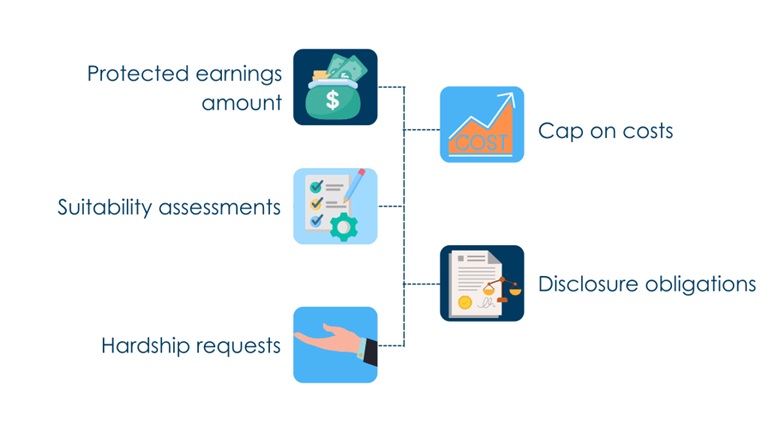- in United Kingdom
- with readers working within the Accounting & Consultancy, Banking & Credit and Media & Information industries
- within Consumer Protection, Technology and Insurance topic(s)
- with Finance and Tax Executives and Inhouse Counsel
ASIC has conducted a review of consumer leases, to evaluate the implementation of the reforms which commenced in 2023. ASIC's review signals its continued focus on consumer harm, with ASIC noting specifically that consumer lease providers obtain 80% of their repayments via CentrePay deductions, meaning consumers who are accessing these products are those more likely to be at risk of financial harm.
ASIC's review
ASIC's review covered the period 1 July 2023 – 30 June 2024 and considered providers' compliance with:
- the protected earnings amount;
- the cap on costs;
- providers' suitability assessments;
- disclosure obligations; and
- financial hardship requests.

ASIC consulted with industry participants, consumer advocates and industry representatives. Six consumer lease providers were issued with notices to produce metrics regarding their consumer leases, a selection of consumer files and policies and procedures in relation to their pricing practices. Another 12 providers were subject to a desktop review.
ASIC has set out the poor practice which it has observed and included guidance for providers in relation to what ASIC considers is better practice. A summary is below.
Consumer lease providers should carefully consider their practices in each of these areas and whether changes should be implemented.
| Protected earnings amount | |
|---|---|
Poor Practice
|
Better Practice
|
| Cap on Costs | |
Poor Practice
|
Better Practice
|
| Suitability Assessment | |
Poor Practice
|
Better Practice
|
| Disclosure Obligations | |
Poor Practice
|
Better Practice
|
| Hardship Practices | |
Poor Practice
|
Better Practice
|
ASIC has also considered those providers who have moved away from providing consumer leases and now provide sale of goods by instalment contracts or lines of credit to purchase household goods. Further commentary and enforcement action is expected from ASIC in this space.
Background
The reforms introduced by the Financial Sector Reform Act 2022 (Cth) to amend the National Consumer Credit Protection Act 2009 (Cth) include:
- A protected earnings amount of no more than 10% of a consumer's after tax income;
- A cap on costs which is calculated by adding together the base price of the goods, plus the term (maximum of 48 months) and multiplying by 0.04, plus any permitted delivery, installation or add-on fees. At present, the only permitted fee is a delivery fee which must be limited to the reasonable costs of delivery. ASIC has not declared any other permitted fees at this stage.
- An obligation for consumers to conduct a responsible lending assessment and consider a consumer's bank statements
- Anti-avoidance provisions, to prevent providers structing their products in order to avoid the new obligations.
ASIC has taken a range of enforcement action in relation to consumer leases since the reforms commenced and has stated that it is committed to further enforcement action. ASIC Deputy Chair Sarah Court has said:
"Enforcement action against misconduct by credit providers and predatory lending is a key enforcement priority for ASIC and we will continue to hold to account any business that we consider has exploited consumers by breaching these important consumer protection laws."
Further Reading
ASIC's Review of Consumer Leases
ASIC Releases report on Hardship for Credit Providers
Report 783 – Hardship Report: Lenders fall short in financial hardship support
The content of this article is intended to provide a general guide to the subject matter. Specialist advice should be sought about your specific circumstances.

